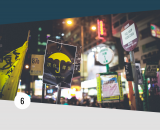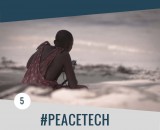Joining the Storytelling Revolution: Interview with International Storytelling Center President Kiran Singh Sirah
Last month, BP’s Editor-in-Chief, Jessica Berns talked to Kiran about what storytelling means in today’s world and its potential to unite communities.
Jessica: What is storytelling?
Kiran: Storytelling is the world’s oldest art form and the oldest form of communication. In every one of us there are thousands upon thousands of stories. We live our lives through story; we dream in stories. We don’t talk in facts; we talk in stories. That’s what connects us on a human level.
Jessica: What’s your story?
Kiran: There is no one story that I nor anyone has. We have multiple, coexisting stories, and our stories constantly change depending on when and where we might be at the time.
My exposure to the power and art of storytelling began at a very young age. My parents came to Britain as refugees. I grew up in south England as a person of color. I didn’t come from great material wealth, my family came with only their shirts on their backs, but they did come with a multitude of stories. These stories not only helped teach me where I was from, they helped create an enriching sense of cultural empowerment, identity, and opened me up to world of possibilities.
“Storytelling in itself is not peace—it’s how stories are used, and for what purpose.”
Jessica: Can you share an example of how storytelling has brought together a community?
Kiran: In 2001, I was working at the National Museum in Scotland. Following 9/11 there was an attack on a mosque and a synagogue in my local community. I felt that our whole country had gone back 30 years in terms of race relations. What I witnessed angered me, to the extent that I realized that the path I wanted to take was through bringing people together via storytelling, education, and the arts. I ended up taking out the yellow pages and phoned every place of worship. I invited the imams, priests, rabbis—everyone. We all came together to share personal narratives and traditional stories —6000 of us. When people share their stories in a safe environment there is a feeling of empathy, of collectiveness, of strength.
Jessica: Circling back to today’s news, what’s happening to document and honor the stories of refugees coming into Europe now?
Kiran: What’s happening right now is the creation of stories. Stories that you’ll hear from the children of Syrian refugees in 15 or 20 years’ time. When I see people welcoming refugees off the trains I know they’re going to remember that moment. It is only the beginning of a story about the children of the refugees, just like we remember the Kinder transport that provided sanctuary for Jewish children fleeing Nazi Germany. Hosts and refugees will grow old alongside one another with a common history of acceptance. Those memories are what is going to be the foundation of beautiful relationships and stories to come. It sows the seeds for a truly peaceful, multicultural society.
Jessica: There’s also the flip side, that stories are created to incite fear or call for violence. How do you view those narratives?
Kiran: ISIS and other such groups cleverly use story to create an ideology that taps into feelings of vulnerability, frustration, and desperation. They build stories to incite people to join their cause.
Storytelling has the potential to be used to create great harm and divisions, but at the same time stories can be used to bring people together. Storytelling in itself is not peace—it’s how stories are used, and for what purpose. Those who are committed to peace have to be smarter in using stories to create a greater, stronger narrative—one that builds on positivity. At the International Storytelling Center, we know that storytelling can build solidarity among those who strive for peace and a better world.
Jessica: The potential of what you describe hinges on one’s ability to listen and truly open one’s mind. How is American culture doing on the listening front? Does being so connected to our personal technological devices weaken our ability to truly listen and hear others?
© Jay Huron - caseSensitive Photos used with permission, courtesy of International Storytelling Center
Kiran: I can’t generalize, but I think you’re probably right. That said, I don’t think it’s just a phenomenon in the United States; it’s happening all over the world. In this digital era we cannot ignore the intimate connections that happen when you have face-to-face human connections. Nothing can beat the real connection created when you have one teller and one listener. But we can use technology to create these opportunities. When stories are shared between two people the possibility of friendship is formed. Imagine what can happen when two nations begin to share their stories.
Jessica: Is that what the International Storytelling Center tries to promote?
Kiran: Our mission is to build a better life and a better world through the power of storytelling. We build partnerships, collaborations, and promote innovation. We draw on the world’s most ancient art form help it to flourish not just as an art, but as an industry, and as a tool for connecting the world.
Jessica: What is your greatest desire for the Storytelling field?
Kiran: For me storytelling is our greatest tool to build a conflict-free world. It’s the art that can help paint a picture of a world in harmony. In 1973 the International Storytelling Center ignited a renaissance in storytelling and created the world’s first storytelling festival. Since then we have only grown as we embrace new genres and create amazing partnerships around the world. One thing we do know is that storytelling is democratizing our voices; the storytelling revolution is going viral!
(Feature Photo Credit: MANGANIARS by Arati Kumar-Rao used with Attribution-NonCommercial-ShareAlike 2.0 Generic (CC BY-NC-SA 2.0). Acessed 12/16/2015.)

